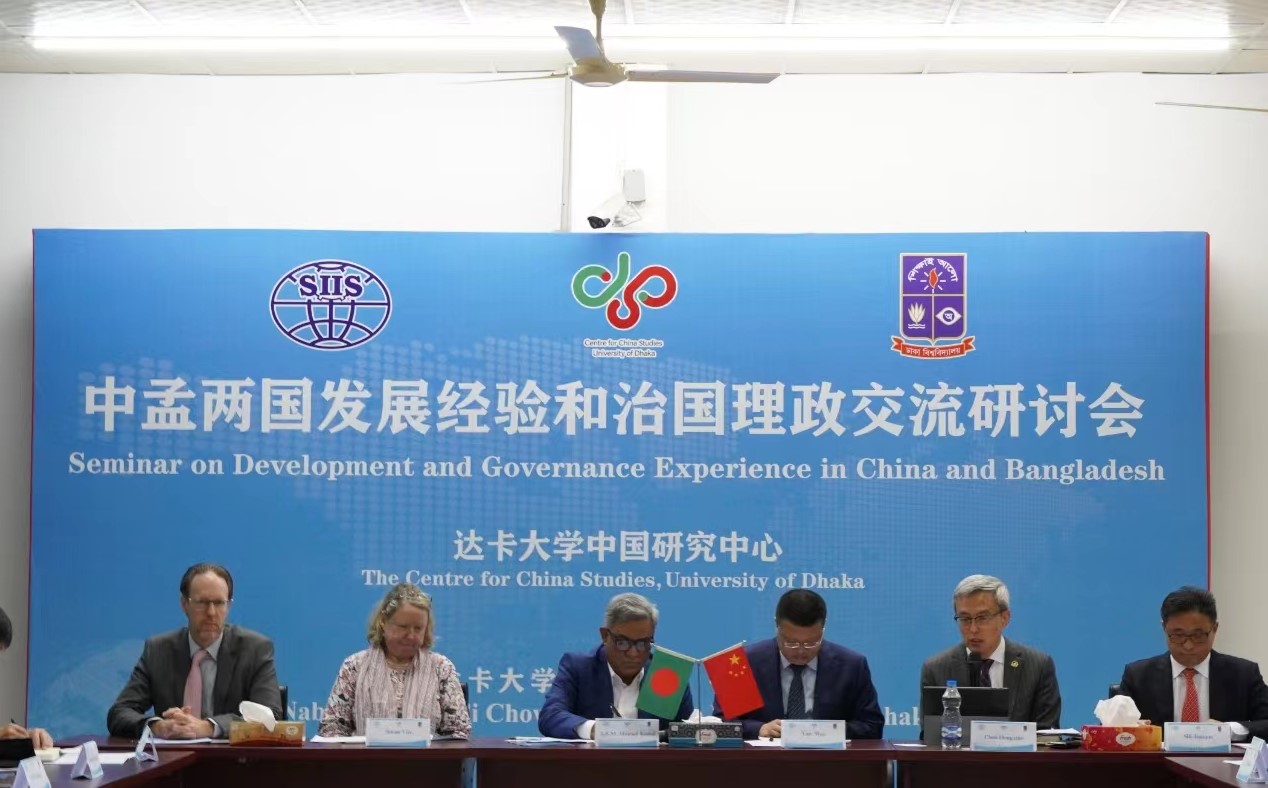
On March 25, the Centre for China Studies (CCS) successfully hosted the Seminar on Development and Governance Experience in China and Bangladesh. Yao Wen, Ambassador of China to Bangladesh, attended the seminar as a special guest and delivered a keynote speech. The seminar was chaired by Maksud Kamal, President of DU and Vice Chairman of the Academic Board of CCS. Chen Dongxiao, President of the Shanghai Institutes for International Studies (SIIS) and Chairman of the Academic Board of CCS, Susan Vize, United Nations Educational, Scientific and Cultural Organization (UNESCO) Representative to Bangladesh, Stefan Liller, United Nations Development Programme (UNDP) Resident Representative for Bangladesh, and Shi Jiaoqun, Food and Agriculture Organization of the United Nations (FAO) Representative in Bangladesh, also delivered keynote speeches. Professor Yao Yang, Boya Distinguished Professor and Executive Director of the Institute of South-South Cooperation and Development at Peking University, presented a special report on China's growth potentials. Experts and scholars from both China and Bangladesh expressed their opinions on the topics of economic development & environmental protection and social governance & domestic stability. They reached a consensus that the establishment of CCS will actively promote mutual exchanges between the different cultures and societies of China and Bangladesh, and will play a positive role in deepening China-Bangladesh relations.
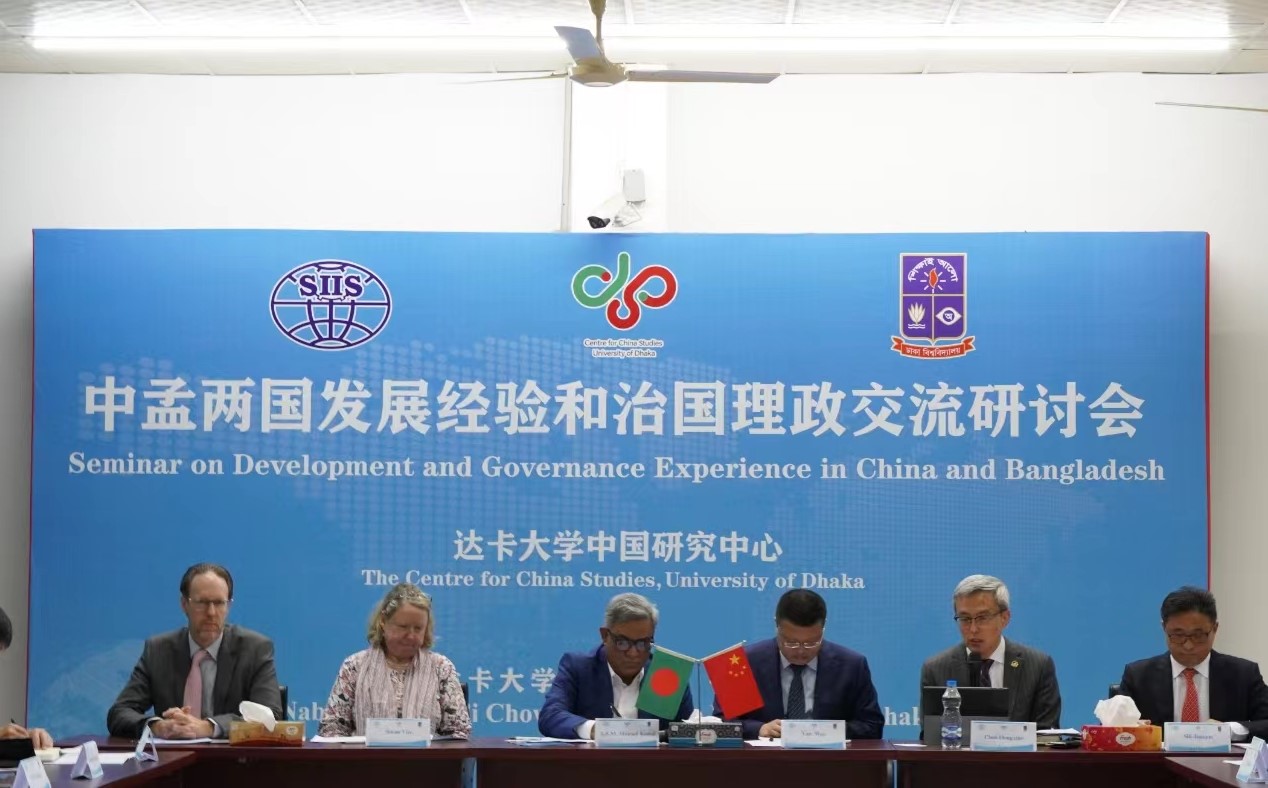
Ambassador Yao Wen noted that this year marks the 75th Anniversary of the Founding of the People's Republic of China and the first year of Bangladesh's new government. Both China and Bangladesh are at a crucial stage of national development. Despite having different social systems, the two countries share many similarities. Firstly, both countries have achieved remarkable economic growth; secondly, both their governments have maintained long-term social stability; and thirdly, both countries boast strong leadership systems. Ambassador Yao Wen stated that he will work to facilitate dialogue and exchanges between scholars of the two countries. He deemed CCS as an important platform for dialogue and exchanges between scholars and think tanks of the two countries. Regarding the future development direction of CCS, he expressed the expectation that CCS will step up research on Chinese path to modernization, propose practical suggestions for strengthening the alignment of both countries’ development strategies, create a public opinion environment conductive to the development of China-Bangladesh relations, strengthen exchanges and discussions between Chinese and Bangladeshi scholars, and provide substantial intellectual support for the leapfrog development of China-Bangladesh relations in the new era.
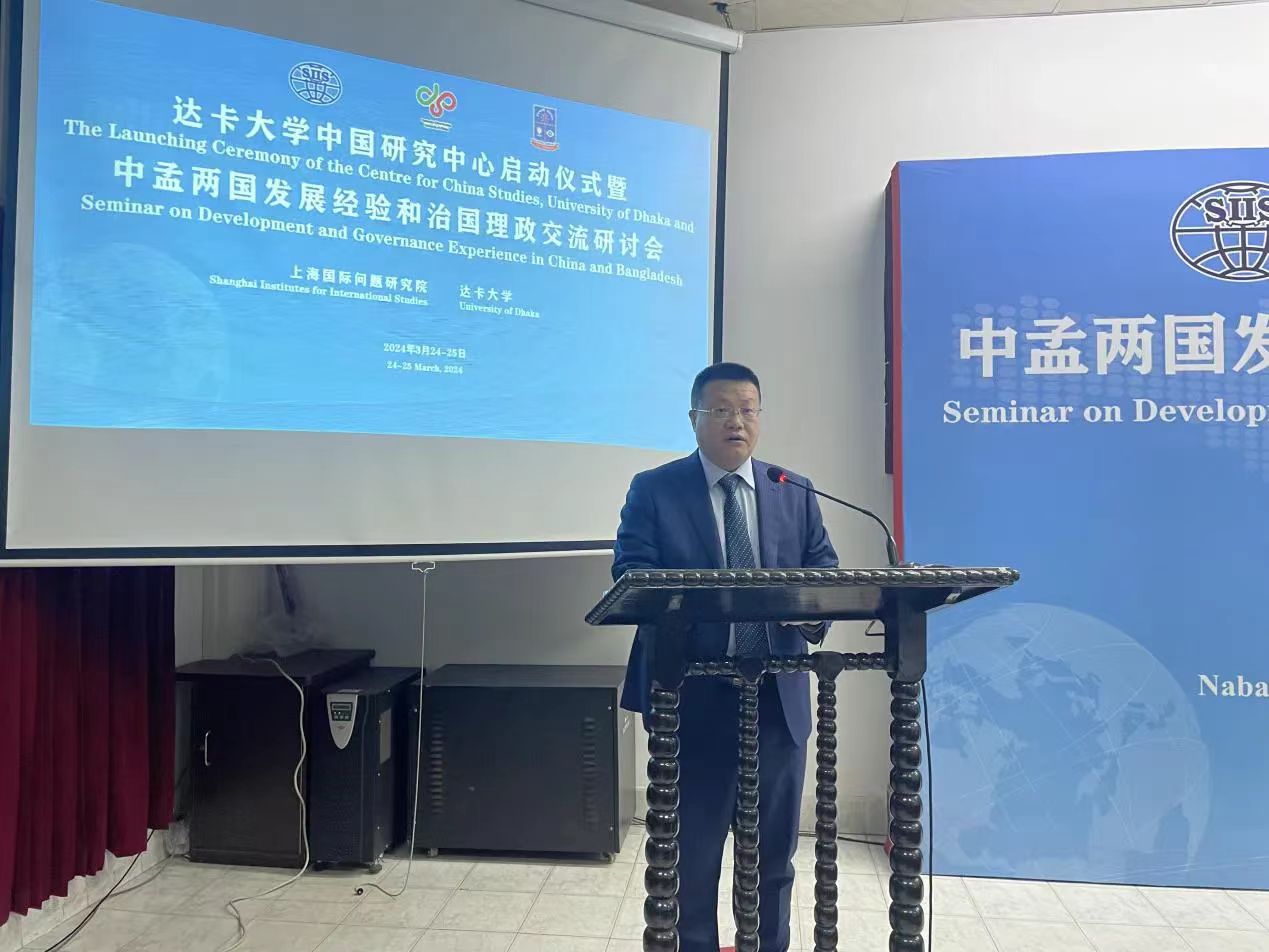
Chen Dongxiao, President of SIIS and Chairman of the Academic Board of CCS, stated that although the developed countries are currently shifting their focus to geopolitical issues, economic and social development always remains the top priority for developing countries. Chinese leaders have put forward the Global Development Initiative. The core essence of the Global Development Initiative is the “Six Persistences”, which meets the need for global governance transformation as outlined in the 2030 Agenda for Sustainable Development adopted by the United Nations, extends the connotation of the new development philosophy, provides clear answers to major theoretical and practical questions about “what kind of development should the world pursue and how to achieve it”, and reflects China's outlook on international development. The Global Development Initiative, Global Security Initiative, and Global Civilization Initiative proposed by China are the three pillars propping up the community with a shared future for mankind advocated by China. The Belt and Road Initiative is a concrete practice and pioneering exploration to implement the three major global initiatives, laying a solid material foundation for their implementation. China and Bangladesh have achieved fruitful results in jointly building the Belt and Road Initiative, which is a specific manifestation of exchanges and mutual learning in development and national governance between the two countries. As the exchanges and cooperation between China and Bangladesh further forge ahead, the two countries will undoubtedly obtain even greater development achievements.
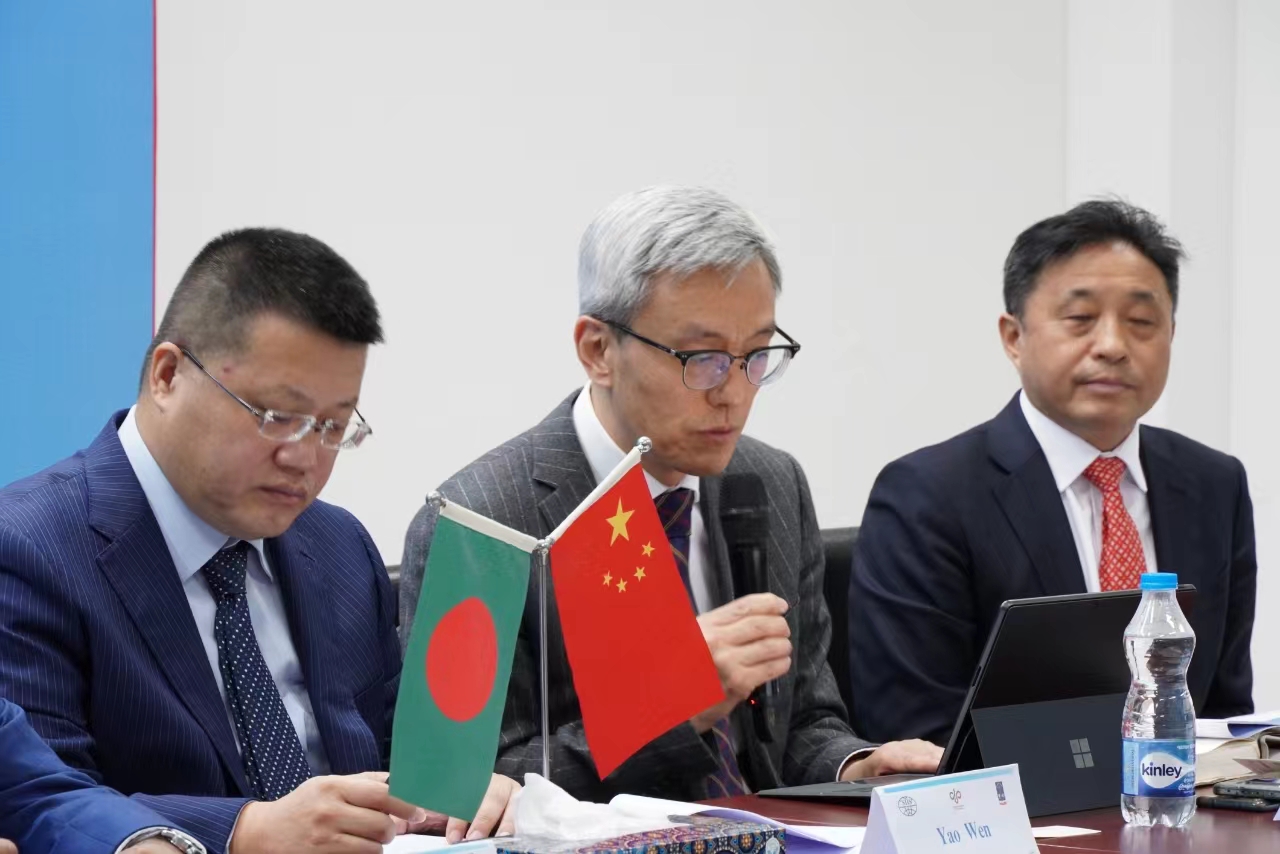
Susan Vize, UNESCO Representative to Bangladesh, mainly shared her views on the importance of higher education. She believes that higher education is of vital importance the future of nations. However, she noted that people tend to focus on immediate challenges and overlook factors with long-term impacts, saying that this is exactly why the United Nations initiated “The Summit of the Future” this year. The summit is designed to collectively address challenges through dialogue, discussions, and joint research. She was confident that CCS will play a vital role in tackling common challenges faced by human beings by strengthening dialogue and exchanges between different cultures, societies, and systems. She noted that the importance of CCS lies in the fact that it offers China and Bangladesh diverse perspectives from a different culture and society on the economic, developmental, and social issues faced by them, and inspires them to seek common solutions through mutual exchanges. She commended the collaborative model of CCS, believing it will add an impetus to the development of higher education.
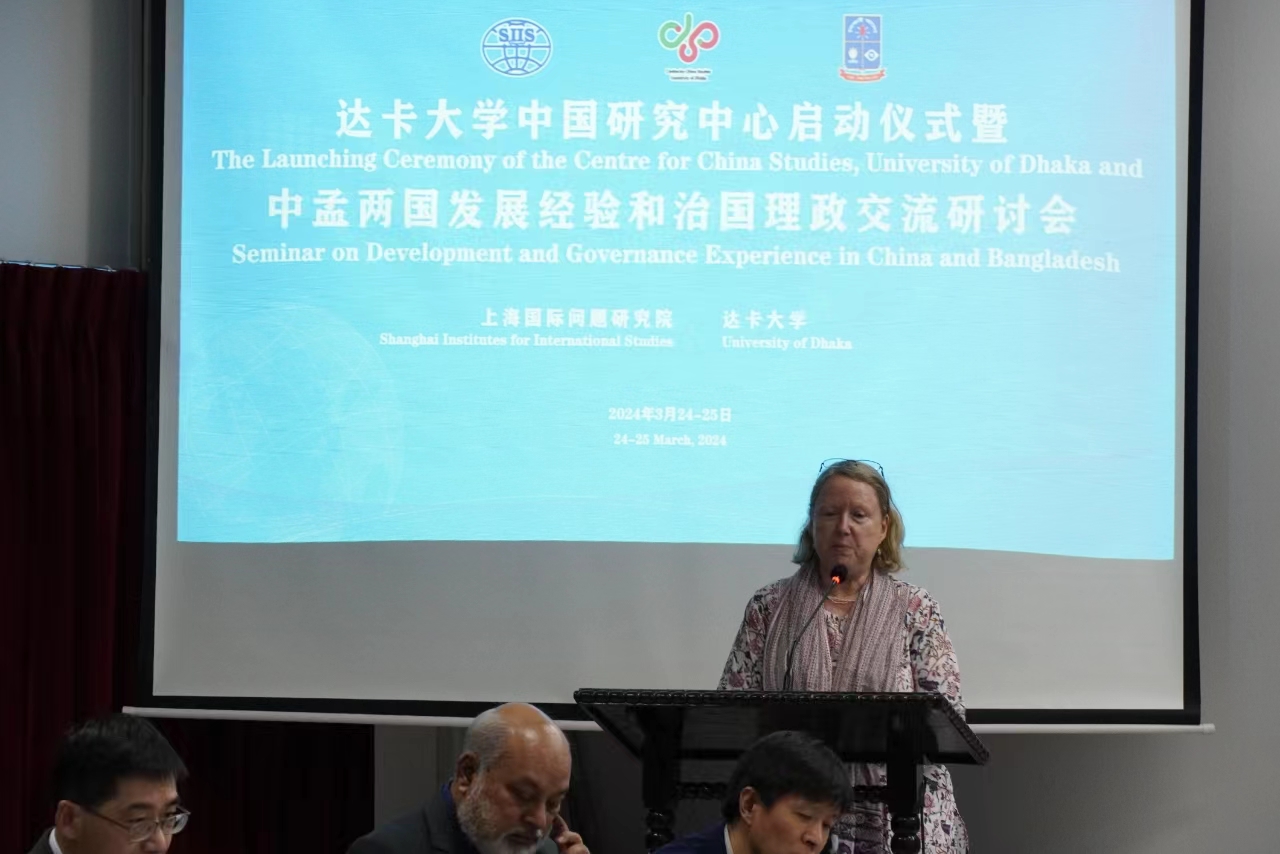
Stefan Liller, UNDP Resident Representative for Bangladesh, looked back at a series of challenges faced by the world over the past few years, including the COVID-19 pandemic, the Russia-Ukraine conflict, the Israel-Palestine conflict, and climate change, stating that these crises require collective efforts of various countries. He highly recognized the importance of the seminar, believing that experts and scholars from both countries were brought together at the seminar to jointly discuss how to address the tricky challenges of our time. Liller also mentioned that UNDP is dedicated to promoting human development, while cooperation among countries is more urgent than ever before in light of the impacts of digital technology and environmental changes. He affirmed the positive significance of CCS, which was established jointly by China and Bangladesh and underlines cooperative development and cultural exchange.
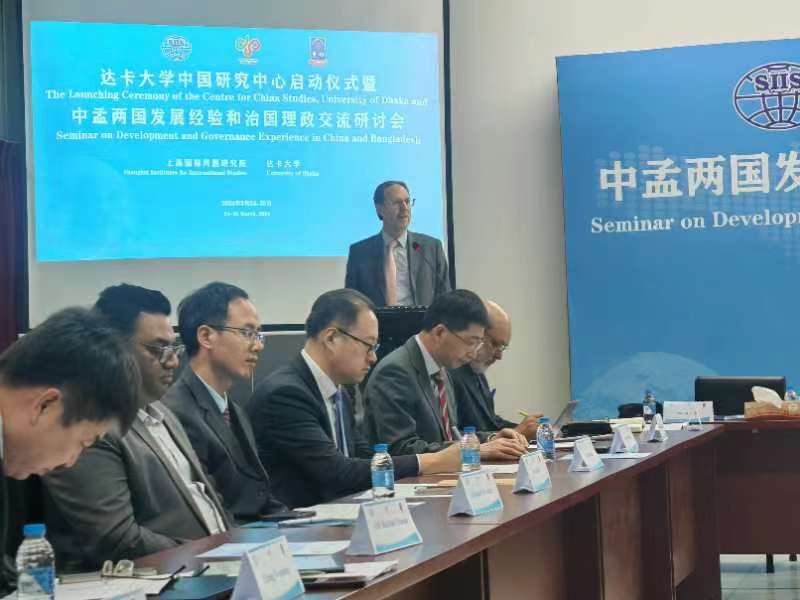
Shi Jiaoqun, FAO Representative in Bangladesh, spoke highly of the establishment of CCS, considering it a milestone event committed to knowledge discovery and cooperative development. He described CCS as a typical case of South-South cooperation. CCS has built a “golden bridge” for mutual exchanges between different cultures, encouraging different cultures to be inclusive and draw on each other’s strengths, and boosting cultural diversity. The platform of CCS will further drive and deepen cooperation between China and Bangladesh. Shi also introduced FAO's main goals and key cooperation projects in Bangladesh, particularly in areas related to food security, water resources, sanitation, and agriculture, which directly concern the country’s stability and people’s livelihood, and show great potential of cooperation with CCS.
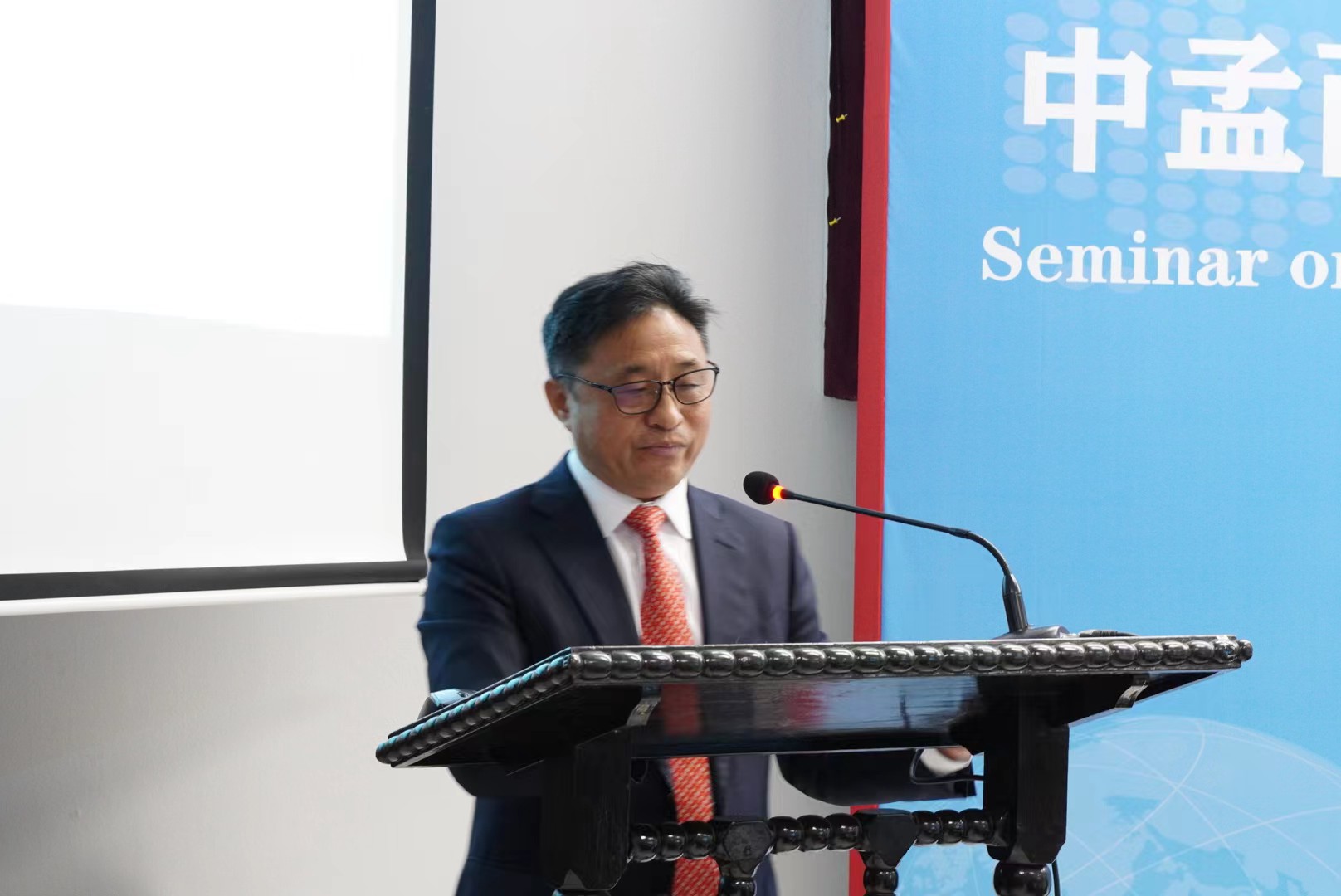
Professor Yao Yang, Boya Distinguished Professor, Executive Director of the Institute of South-South Cooperation and Development, and Director of the China Center for Economic Research at Peking University, delivered a special report themed on China's growth potentials. He provided an overview of China's economic development to all attending guests, comprehensively repudiating many countries’ negative rhetoric against China’s economy. He outlined China's economic potential and major advantages, depicting an objective, rational, and comprehensive picture of China's economic development. Yao noted that China’s manufacturing has maintained lasting momentum, which is a long-term advantage of China. Meanwhile, he pointed out that China has become a leading country in certain areas of cutting-edge technology such as artificial intelligence and renewable energy. The U.S. technology blockade on China has failed to restrain the science & technology development of China, but instead has forced China to pick up the pace in high-tech fields, creating backlash against U.S. interests and hindered the development of many American companies. Furthermore, Yao conducted a comprehensive analysis of issues in China's domestic consumption, local government debt, and real estate sector. He concluded that China's economy still holds tremendous potential, predicting that China will play a leading role in more high-tech frontier areas over the next 30 years. He argued that the U.S. policy of decoupling from China will not be effective, as global demand for Chinese products will be on constant rise. Yao emphasized that China's recent economic growth slowdown is aimed at allowing space for structural adjustments. This session was chaired by Professor Farid Uddin Ahmed, Vice Chancellor of Shahjalal University of Science &. Technology, Bangladesh.
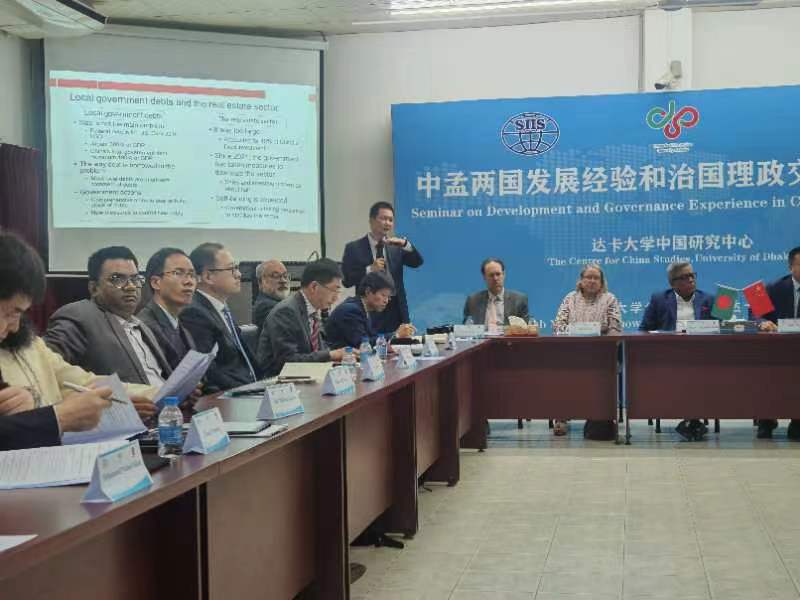
Later on, experts and scholars from China and Bangladesh expressed their main views on topics such as economic development & environmental protection, social governance & domestic stability, etc., sharing domestic development progress and main experiences of their respective countries to be mutually learned from. Based on the historical development and current national conditions of China and Bangladesh, scholars from both sides compared and analyzed the similarities and differences between the two countries, providing important references for future cooperation between them. In particular, further efforts will be made to strengthen communication, exchange, and experience sharing in areas including national governance, rural & agricultural development, environmental governance, poverty alleviation, connectivity, education, and think tank construction. Members of the Academic Board of CCS respectively chaired the session, and made comments and summaries. Vice-President of Yunnan University Hu Jinming and Vice President of East China Normal University Gu Hongliang respectively chaired a session, while Professor Didar-ul-Alam, Vice Chancellor of Noakhali University of Science and Technology, commented on sessions. Finally, President Yu Yunquan of the Academy of Contemporary China and World Studies and Vice Chancellor Sitesh Chandra Bacha from DU concluded the seminar.